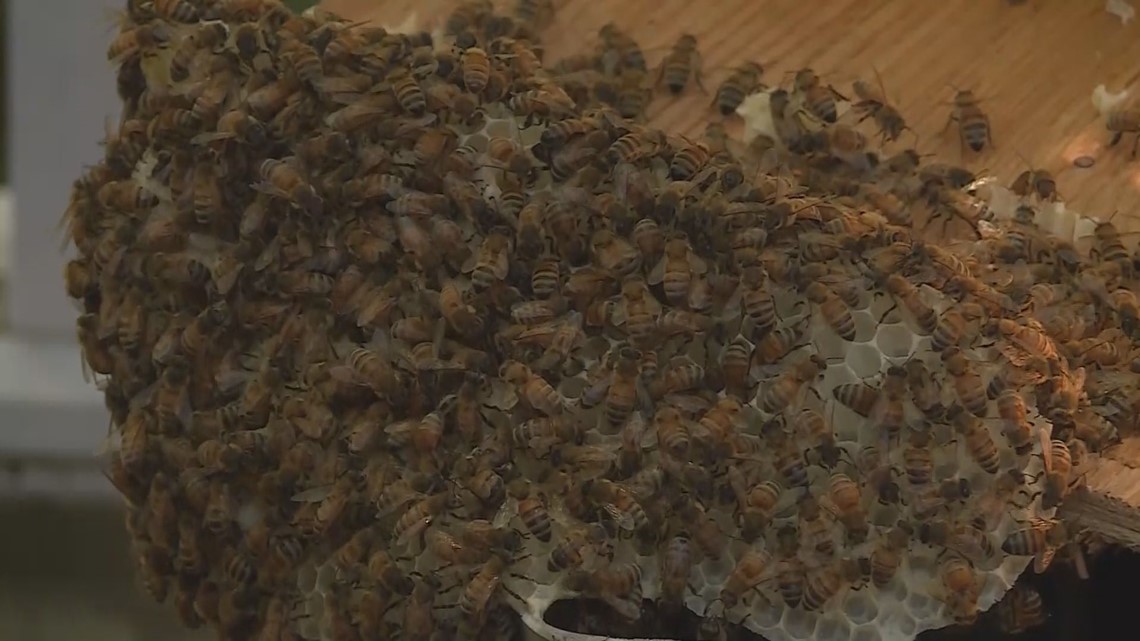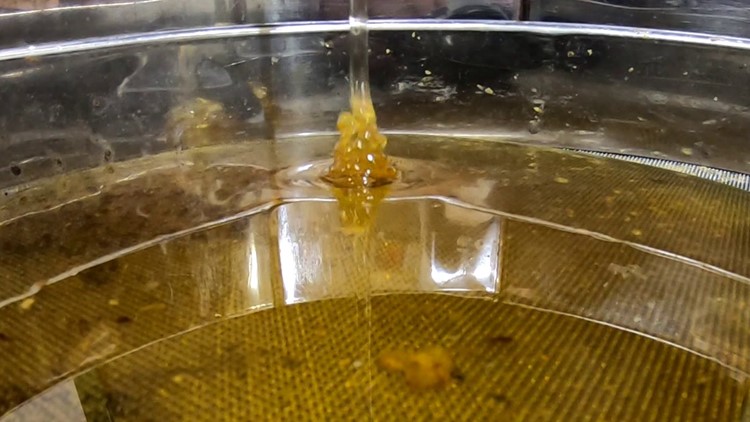ARIZONA, USA — It's known to many as Mother Nature’s antidote to allergies.
The idea that local honey can help treat allergies is a popular one. Visit your local farmers market, and there's a good chance you'll see a honey stand promoting the natural benefits that eating raw honey or bee pollen can bring, especially in Arizona.
It's monsoon season in the Grand Canyon State, and while that may bring some relief from the heat, it also whips up pollen, dust and mold particles to bring monsoon season allergies with it.
Additionally, the Arizona desert allows plants to flower and produce pollen year-round, since it doesn't have the usual temperate climate other regions do.
But, should people who suffer from allergies turn to local raw honey or pollen as a source of relief?
THE QUESTION:
Does eating raw honey or pollen alleviate allergies?
THE ANSWER:
No. There are numerous issues why consuming raw honey or bee pollen does not develop even a slight immune response in the body.
WHAT WE FOUND:
Let's start with the type of pollen that bees use and end up getting into honey.
Bees typically extract their pollen from flowers. But, not all pollen causes severe allergies. In fact, flower pollen is not a primary contributor to bad allergies.
The major pollens, in general, come from grass, trees, and weeds, according to Dr. Rahul Rishi from the Arizona Allergy Associates.
In Arizona, the major pollens which contribute to allergies are:
- Grasses
- Bermuda
- Ryegrass
- Trees
- Mulberry
- Olive
- Ash
- Palo Verde
- Citrus
- Weeds
- Ragweed
- Russian Thistle
Even if an individual has an allergy specifically to flower pollen, they will still most likely not receive any benefits from eating raw honey or bee pollen.
The idea is similar to immunotherapy, which is ingesting a little bit of what a person is allergic in order for their immune system to become desensitized to it. However, in order for the body to develop an immunity, the allergen needs to be received systemically, or straight into the body, through an injection.
"When you're consuming raw honey or bee pollen, you're swallowing it," Dr. Rishi said. "You're ingesting it, so you're not really getting the amount of pollen needed to develop that tolerance."
Additionally, the dosage of allergens given in injections are much more concentrated and in higher amounts than the amount of pollen found in raw honey.
Consuming large amounts of raw honey can also bring some negative risks.
A difference between raw honey and store-bought is that raw honey isn't commercialized or filtered, so it includes a lot of things like bee parts or mold spores which can cause reactions in people who are allergic.


"If you're allergic to bees, or what we call Hymenoptera (which includes wasps, yellowjackets, and other vespids), there is a small risk when consuming raw or unfiltered honey, you can have an anaphylactic or systemic response to it," Dr. Rishi said.
Feeding honey to children under 12 months old also has it's own unique rare risks, as honey can contain botulism spores which can poison infants and affect their nervous systems.
When it comes to trying to treat allergies, people are best to stick to standardized medicines, nasal steroid sprays, or allergy shots, according to Dr. Rishi.
However, people should be wary of "shot-free" therapies that some non-allergists provide.
"They're giving patients these drops with the same allergens that we would put in the injections, but they just tell patients to put it under their tongue and swallow it," Dr. Rishi said.
"What the public doesn't understand is that this treatment also isn't FDA approved and the doctors are billing the insurance as if they're giving allergy shots."
BOTTOM LINE:
While honey may not be Mother Nature’s antidote, it still acts as an amazingly tasty sweetener.
Need something VERIFIED? Fill out this form or email verify@12news.com to submit your story.



